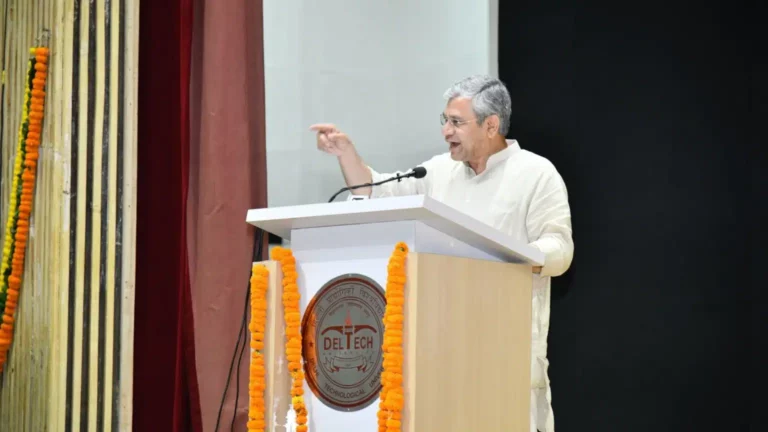At MachineCon GCC Summit 2024, a panel of distinguished industry leaders convened to address the critical issue of cultural intelligence in Global Capability Centers (GCCs) and its impact on enhancing global operations. The discussion featured insights from Kaustubh Deshpande, Head of Capabilities, Transformation & Innovation at Societe Generale; Divesh Singla, SVP of Biotech Operations at Signant Health; Himanshu Shah, Managing Director at Snowflake India; Balaji Narasimhan, Head of Operations and GCC Site Leader at TransUnion; and Avinash Samrit, Country Head for India and President of Global Capability at Clean Harbors. These experts, representing a diverse range of industries and perspectives, explored the evolving role of GCCs and the increasing importance of cultural competence in driving value and innovation.
The panel opened by defining cultural intelligence as the capacity to navigate, comprehend, and make an effect across varied cultures in unfamiliar contexts. They emphasised that this talent is more than just knowledge; it also includes the ability to appreciate differences without stereotyping and to leverage the potential of diversity to promote collective wisdom and creativity. The talk focused on how GCCs have evolved from largely cost-saving entities to value-creating partners for their parent organisations, making cultural intelligence more important than ever.
A substantial chunk of the discourse centred on the GCCs’ customer-centric strategy. The panellists emphasised the significance of bridging the gap between GCC operations and end consumers, which necessitates a thorough awareness of cultural differences in various countries. This understanding is critical for building goods, offering services, and generating meaningful consumer experiences that are relevant across cultural boundaries.
The executives offered their perspectives on successful leadership strategies that promote cultural intelligence inside organisations. These included making cultural intelligence a strategic priority, implementing formal sensitization programmes, and facilitating cross-cultural encounters. They emphasised the importance of leaders setting an example by treating all team members equally, regardless of geography, and building an inclusive culture that values varied opinions.
The operational issues that GCC countries confront were also thoroughly examined. These included cultural mismatch in values and decision-making processes, adjusting to cultural globalisation, and negotiating regulatory variations between countries. The panellists agreed that resolving these difficulties needs a high cultural quotient inside the organisation, as well as a readiness to adapt and learn on a regular basis.
Cultural intelligence-driven innovation emerged as a prominent subject, with instances of how understanding cultural trends and preferences led to the development of new goods and techniques. One such example was the development of new credit scoring systems for developing economies, which were founded on a thorough study of shifting financial behaviours and cultural attitudes towards credit.
Looking ahead, the panel recognised three themes that would influence the role of cultural intelligence in GCCs. These included a greater emphasis on cultural diversity at the board level, the incorporation of cultural intelligence into AI and technology solutions, and the rising value of cultural navigation abilities in talent acquisition. They also expected that GCC jobs would expand beyond technology to core business operations, with a growing emphasis on managing distant workforces and multinational teams.
The conversation ended with a reflection on the changing perceptions of GCCs. The panellists saw a major shift from a “low-value, low-cost” mentality to a “high-value, right-cost” strategy.
This shift is driven by GCCs’ increasing cultural competency, which allows them to contribute more strategically to their parent organisations and take on increasingly complicated, value-added activities.
Throughout the discussion, the experts emphasised that as GCCs expand and play increasingly important roles in global organisations, cultural intelligence would be a crucial differentiator and success element. They agreed that investing in cultural competency is not a nice-to-have, but a strategic need for GCCs seeking to drive innovation, improve global operations, and generate long-term value in an increasingly linked world.










